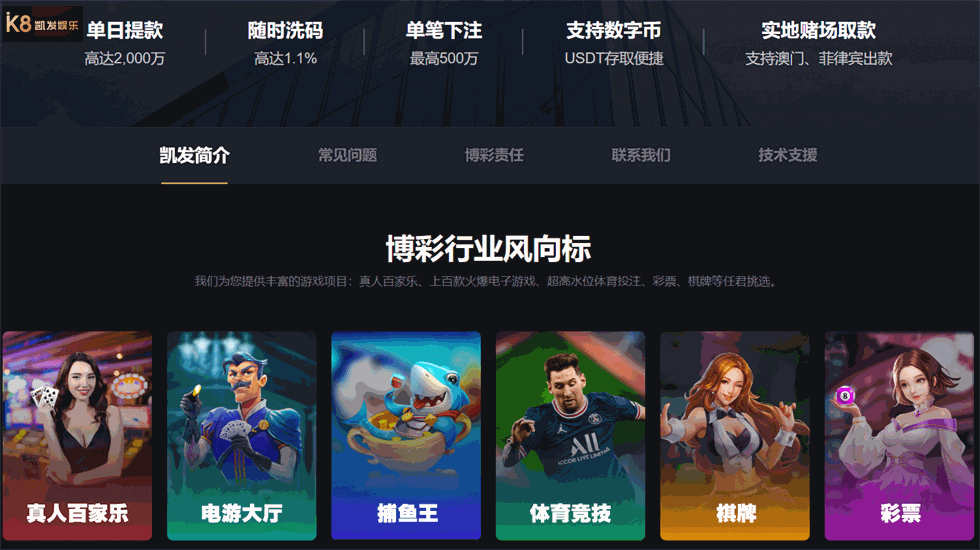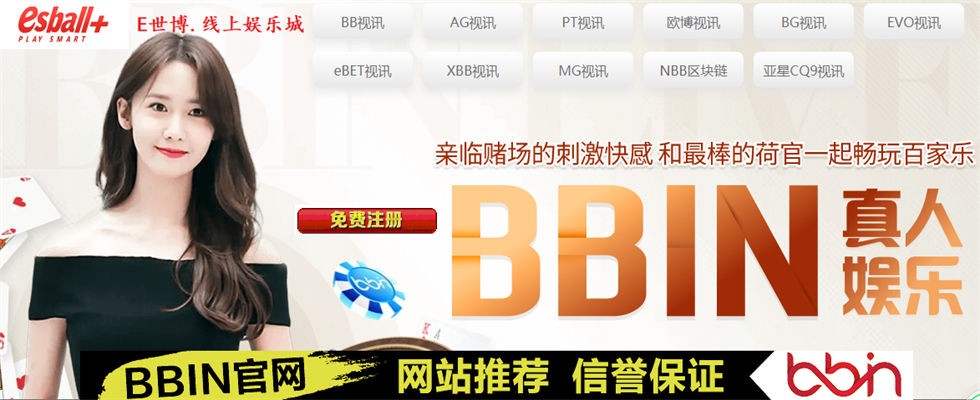關於数字货币全球举措(DCGI)的概念说明
发布日期:2022-06-03 22:14 点击次数:92
数字货币全球举措(DCGI)的概念说明
----------------
斯坦福大学与国际电信联盟(ITU)联手发起了数字货币全球倡议(DGCI),主要目标是研究由技术架构、安全、央行数字货币和其他数字货币的监管和政策带来的技术影响和挑战、数字货币技术趋势以及与金融包容性等方面。DGCI 下成立了三个工作组,以推动数字货币的标准化和创新性应用,解决基础架构、安全性和信任。第一个小组负责架构、交互性要求、使用案例(AIRU)。第二个小组负责政策和治理(PG)。第三个小组负责安全和保证(SA)。
国际电联和斯坦福大学于2020年7月22日至23日合作在线举办数字货币全球举措第一次会议。
----------------
1 引言
数字货币全球举措(“DCGI”)由设在瑞士日内瓦、负责信息通信技术(ICT)和电信的联合国专门机构国际电信联盟(ITU)与设在美国硅谷的斯坦福大学数字货币未来项目合作设立。该举措将继续由FG-DFC已启动的、涉及试点实施、使用案例、应用和制定技术标准规范的对话和研究,以促进采用、普及和最终的金融普惠。在本文中,数字货币(DC)被视为任何形式的各种数字货币,包括但不限于基于分布式账簿技术(DLT)的加密货币(CC)、央行数字货币(CBDC)、数字法定货币(DFC)以及包括稳定货币(SC)在内的任何混合变体。
该合作将致力于维持FG DFC的中立、开放和有利的环境,中央银行、金融技术创新者、技术提供商、联合国专门组织、支付服务组织、ICT技术安全和其他相关行业和专业人员都将参与其中。该平台将允许分享在实施数字货币方面的最佳行业做法和经验教训。斯坦福大学工程学院将成为数字货币全球举措的主要技术合作伙伴。
2 使命
数字货币全球举措的使命和宗旨是努力实现以下目标:
? 进一步研究央行数字货币和其他数字货币的技术架构、安全性、监管和政策要求所带来的技术影响和部署挑战、数字货币的技术发展趋势以及与金融普惠、运营效率和互操作性相关的使用案例;
? 构建一套衡量标准,根据各利益攸关方设定的要求,评估各种数字货币技术的稳健性;
? 确定能够实施数字货币的标准化领域;以及
? 每年组织一次会议,分享有关数字货币实施的最佳做法、技术标准和经验教训的信息。
该举措愿景的主要成果将有助于实现联合国可持续发展目标(SDG):
? SDG 1:消除贫困— “到2030年,确保所有男女,特别是穷人和弱势群体,享有…包括小额信贷在内的金融服务”。
? SDG 9:工业、创新和基础设施— 通过向小型企业提供金融服务(数字化支付,从而减少现金流入和流出的需求)。
? SDG 10:减少不平等 — 降低汇款成本。
3 支柱和目标
数字货币全球举措的目标是推动数字货币的协同参与、创新使用和标准化,这是该举措的三大支柱。每个支柱的目标如下所述。
? 参与支柱:该举措将通过以下方式推动数字货币生态系统利益攸关方之间的协同参与:
a) 组织研讨会和年度活动,召集行业领袖讨论工作组的调查结果、达成共识并开展宣传。
b) 分享关于最佳做法、技术要求和实施的知识和经验教训。
c) 就有效部署数字货币体系问题促进与中央银行和监管机构的对话。
? 创新使用支柱
通过建立评估方法和指标来提高行业效率,以确保对整个生态系统的性能、安全性和恢复能力进行高度可信、可重复的验证和基准测试。
该举措将通过以下方式推动数字货币的创新使用和应用:
a) 研究创新新兴技术和用例。
b) 开发一套通用的方法和指标,根据一套通用的要求评估现有和未来实施的性能、安全性和恢复能力。
c) 使用通用测量参考对系统和组件实施进行测试和评估。
d) 监测和记录技术趋势和未来实施情况,以及作为新兴最佳做法而汲取的经验教训.
? 标准化支柱
制定政策目标、治理规范、数字货币系统架构和互操作性的技术要求,并与国际电联和其他标准制定机构协调,努力确定需要标准化的领域
该举措将通过将成立的三个工作组推动数字货币试点实施的标准化工作:
a) 研究和分析数字货币实施用例、数字货币平台架构、识别和认证技术、防欺诈、消费者保护、加密机制以及与部署数字货币相关的其他关键技术事项。
b) 为互操作性制定技术指南和最佳做法,以使数字货币技术与现有支付系统有效互联。
c) 开发可靠的方法和指标,以实现对性能、可扩展性和运营效率的一致和高度可信的评估和基准测试。
d) 以更为明确和更为简单的方式,开发威胁和漏洞的安全保障模型和度量标准以及安全控制的应用。
标准化支柱下设立的三个工作组是:
? 架构、互操作性要求和用例(AIRU)
? 政策和治理(PG)
? 安全保障(SA)
这项工作将由学术界、政府、行业和所有相关领域的标准制定组织中负责该问题和领域的专家进行,包括标准、监管、审计和认证组织、服务提供商、中央银行和银行;技术提供商、系统集成商、实施方、供应链以及安全、隐私和信任新兴法律和政策方面的专家。
4 工作组的职责范围和实际成果
4.1 架构、互操作性要求和用例工作组
关注数字货币实施在运营方面面临对的挑战,包括运营效率(运营成本)、可扩展性(规模性能)、可靠性(高度可重复)、可维护性(变更管理)、互操作性(供应链集成)和恢复能力(高度可恢复)
该工作组将开展研究,并验证不同数字货币用例互操作性的体系结构、特征和技术要求。其中将开展的主要任务包括:
a) 从利益攸关方处收集并记录关于现有举措和活动的信息,包括数字货币实施中涉及的开源举措;
b) 将实施和集成数字货币所需的功能性网络参考架构和流程组件与现有支付系统进行对照,从而实现互操作性;
c) 分析和评估数字货币技术的现状、新趋势及其成熟度;
d) 确定数字货币的用例、技术要求和应用;
e) 确定基于数字货币的服务的特征和功能要求;和
f) 就体系结构的技术标准要求以及与现有系统的互操作性提出建议。
该工作组的主要实际成果为:
a) 开发关于数字货币实施的在线资料库,其中包含关于功能特征、用例、架构、实施的治理和政策、使用的技术等详细信息。
b) 针对批发和零售央行数字货币的央行数字货币功能要求以及可能形成创新应用的技术发展趋势,编写技术报告。
c) 制定一套衡量标准,根据各利益攸关方设定的要求,衡量/评估各种数字货币技术的稳健性、性能和特征
d) 起草讲述和说明标准化差距并确定数字货币未来标准化工作的技术报告。
4.2 政策和治理工作组
该工作组将重点研究数字货币对金融普惠社会的政策、法律和治理影响。该组还将根据从所有实施中吸取的经验教训来跟踪技术发展趋势和用例。
该工作组将汇集中央银行、决策者机构技术提供商,致力于以下任务:
a) 研究和分析数字货币平台治理的技术影响,同时考虑基于将数字货币与传统老旧系统集成的技术影响。
b) 研究和分析数字货币总体技术标准的需求,包括批发和零售央行数字货币、私人发行的稳定货币的跨境汇款和国际组织用于人道主义援助的技术标准。
c) 研究和分析可能迟滞用于金融普惠的数字货币部署的技术竞争问题。
d) 制定关于数字货币如何协助消除金融普惠差距的政策指南。
该工作组的主要实际成果为:
a) 开发决策和监管部门在国家层面实施数字货币可使用的政策工具包。
b) 举办区域专题讲习班,以便向各利益攸关方征求意见。这些讲习班将汇聚电信监管机构、金融监管机构、决策机构和其它攸关方,共同确定问题和工作重点,通过平等互学和知识发布程序交流信息和最佳做法,并确定实施数字货币,以实现金融普惠目标的可行政策干预行动。
c) 制定高级政策原则,以满足数字货币的互操作性、安全性、反洗钱、识别和认证以及数据隐私要求。
4.3 安全保障工作组
重点开发灵活的多重保障安全最佳做法概要和模板,这些概要和模板附带了合理保护数字货币及其实施的指导原则
该工作组将汇集数字货币生态系统的安全从业人员,致力于以下工作:
a) 构建数字货币发行和数字货币交易的流程模板,包括基础资产和流程类别。
b) 将数字货币系统的威胁和漏洞与安全对策两者进行对照。推荐最佳做法。
c) 为数字货币实施评估和验证制定安全方法和指标。
d) 开发灵活且可定制的数字货币多重安全保障概要模板,以促进对数字货币安全和合规的统一管理,并建立共同的基准基础。
e) 展示数字货币安全技术及其评估用例。
该工作组的主要实际成果为:
a) 一份旨在保护数字货币及其实施的网络风险管理、安全保障概要、安全控制框架和安全保障最佳做法的技术报告。
b) 一份关于数字货币实施安全验证的安全性度量和标准的技术报告。
c) 一个安全工具包和评估平台,旨在帮助安全从业人员和管理人员管理数字货币实施的安全风险。
5 年度活动:数字货币会议
参与支柱下的年度活动的主要目标是:
? 提供一个独特的平台,分享有关数字货币技术、试点实施、互操作性和治理的经验教训;
? 展示全球范围内的数字货币试点实施和创新;以及
? 在数字货币战略、标准和创新方面提供思想领导力,以此作为弥合金融普惠差距和实现联合国可持续发展目标的推动因素。
这项活动将由国际电联和斯坦福大学联合组织,向所有人开放。目标受众是央行、数字货币技术公司、支付系统提供商、金融技术公司、标准制定机构、信息技术安全公司、行业协会、学术界和政策制定机构。
6 创新使用支柱
创新使用支柱的主要目标是研究建立央行数字货币和其他数字货币的试点实施,并通过斯坦福大学运营的数字货币实验室制定适当的基准和评估框架。未来的第二目标是为参与DCGI工作的数字货币初创企业开发一个孵化器。
7 数字货币实验室:数字货币平台的评估和基准测试
为了实现既定的DCGI目标,即推动数字货币标准的制定,工作组将建立一个流程,以制定和验证要求、规范和技术评估标准,从而通过生态系统协作和共识实现数字货币平台的基准设定。
参与三个工作组的生态系统利益攸关方和该领域的专家将制定拟议的规范。工作组专家将采取解决问题的方法,分析挑战并提出“未经测试”的解决方案。
然后,使用真实世界的数字货币实施来评估这些解决方案和建议的规范,以便确定其预期宗旨的适当性和价值,例如通过应用安全控制来进行保护。规范的创建和验证之间的迭代过程一直持续到所有利益攸关方就适用性和完整性达成共识为止。
要取得公布标准可靠且可接受这一结果,关键是开发可靠的模型、评估方法和度量标准,以确保评估和基准的可重复和高可信度。验证过程从确定操作性能和安全需求方面开始,这些方面需要可以定义和标准化的技术评估标准和度量。各种验证测试规范和基准流程也将标准化。上述工作将在工作组中完成,然后在数字货币实验室中实施和测试。
这就是“需验证事项”,其中包括:
? 可扩展性(规模性能)、效率(运营成本)、互操作性(与现有和老旧系统)、可靠性(高度可重复)、可维护性(变更管理)、恢复能力(高度可恢复)的性能特征。
? 作为攻击目标的数字货币组件漏洞的保护特征;可以利用目标漏洞的威胁媒介;可以减轻威胁的安全对策和产生可接受的残留风险的合理保证水平。
“需验证事项”的后续问题是“为何验证?”这包括数字货币体系是否能做到:
? 名副其实?
? 满足一系列要求
? 满足特定的保障等级
----------------
Digital Currency Global Initiative (DCGI) Concept Note
1.Introduction
The Digital Currency Global Initiative ("DCGI") is a joint collaboration of the International Telecommunication Union (ITU), a United Nations specialized agency for Information Communication Technologies (ICT) and telecommunications, based in Geneva Switzerland and Stanford University’s Future of Digital Currency Program, based in Silicon Valley USA. The Initiative will continue the dialogue and research initiated by the FG-DFC on pilot implementations, use cases, applications and developing specifications for technical standards that will foster adoption, universal access and ultimately financial inclusion. In this document, Digital Currency (DC) is considered as all digital currencies in any form including but not limited to Cryptocurrencies (CC) based on Distributed Ledger Technology (DLT) , Central Bank Digital Currencies (CBDC), Digital Fiat Currency (DFC) and any hybrid variants including stablecoins (SC).
The collaboration will work towards maintaining the neutral, open access, and conducive environment of the FG DFC where central banks, fintech innovators, technology providers, United Nations specialized organizations, payment service organizations, ICT security and other related industries and professionals. This platform will allow for sharing of industry best practices and lessons learned on implementations of DCs. Stanford University's School of Engineering will be the main technology partner for the Digital Currency Global Initiative.
2.Mission
The mission and purpose of the Digital Currency Global Initiative is to pursue the following objectives:
·Conduct further research on technical architecture, security, the technical implications and challenges in deployment caused by regulatory and policy requirements for Central Bank Digital Currency and other DCs, technology trends in digital currency and the use cases related to financial inclusion, operational efficiency and interoperability;
·Construct a set of metrics by which to evaluate the robustness of various digital currency technologies against the requirements set by various stakeholders;
·Identify areas for standardization to enable implementation of digital currency; and
·Organize a conference on an annual basis to share information on best practices, technical standards and lessons learned on digital currency implementation.
The main outcomes of the Initiative’s vision will contribute towards the United Nations Sustainable Development Goals (SDG):
·SDG 1: No poverty—“By 2030, ensure that all men and women, in particular the poor and the vulnerable, have…access to financial services including microfinance”.
·SDG 9: Industry, innovation and infrastructure—byproviding small enterprises with access to financial services (digitizing payments thereby reducing the need for cash-in and cash-out).
·SDG 10: Reduced inequalities—reducing the costs for remittances.
3.Pillars and Goals
The Digital Currency Global Initiative goals are to drive the synergistic engagement, innovative use, and standardization of Digital Currencies, which are the three pillars of the Initiative. The goals of each pillar are described below.
·Engagement Pillar: The Initiative willdrive synergistic engagement between Digital Currency ecosystem stakeholders by:
a.Organizing workshops and an annual event to convene industry leaders for discussion, consensus building and dissemination the findings of the working groups.
b.Sharing knowledge and lessons learned on best practices, technical requirements and implementations.
c.Fostering dialogue with Central Banks and regulators on the effective deployment of digital currency systems
·Innovative Use Pillar
Drive industry efficiency through the establishment of evaluation methods and metrics to ensure high confidence and repeatable validation and benchmarking of performance, security and resilience across ecosystem
The Initiative will drive the innovative use and application of Digital Currencies through:
a.Research on innovative emerging technologies and uses cases
b.Developing a common set of methods and metrics to evaluate the performance, security and resilience of existing and future implementations against a set of common requirements
c.Testing and evaluation of system and components of implementations using a common measurement reference.
d.Monitoring and documenting technology trends and future implementations and their lessons learned as emerging best practices
·StandardizationPillar
Development of policy objectives, governance norms, technical requirements for architecture and interoperability of digital currency systems and work towards identification of areas for standardization in coordination with ITU and other Standards setting bodies
The Initiative will drive standardization of Digital Currency pilot implementations through the three working groups that will be established:
a.Research and analysis of DC implementation use cases, DC platform architectures, identification and authentication technologies, fraud prevention, consumer protection, cryptographic mechanisms and other key technical matters relevant for deployment of DCs.
b.Develop technical guidelines and best practices for interoperabilityto enable the effective interconnection of DC technologies with existing payment systems
c.Develop reliable methods and metrics to enable the consistent and high confidence evaluation and benchmarking of performance, scalability, and operational efficiency.
d.Develop security and assurance models and metrics of threats and vulnerabilities and the application of security controls in ways that improve clarity and reduce complexity.
The three working groups set up under the Standardization Pillar are:
·Architecture, Interoperability Requirements and Use Cases (AIRU)
·Policy and Governance (PG)
·Security and Assurance (SA)
The work will be conducted by subject matter and domain experts across academia, government, industry and standard’s setting organizations in all related fields including Standards, Regulatory, Audit and Certification organizations, Service Providers, Central Banks and Banks; Technology Providers, System Integrators, Implementors, Supply Chain, and experts in Security, Privacy & Trust Emerging Law and policy.
4.Working Groups Terms of Reference and Deliverables
4.1Architecture, Interoperability Requirements and Use Cases Working Group
Focus on the operational challenges of Digital Currency implementations including operational efficiency (cost of operations), scalability (performance at scale), reliability (highly repeatable), maintainability (change management), interoperability (Supply chain integration), and resilience (highly recoverable)
The working group will carry out research and validate the architecture, characteristics and technical requirements for interoperability for different digital currency use cases. The main tasks that will be undertaken include inter-alia:
a)Collect and document information on current initiatives and activities from the stakeholders, including Open Source Initiatives involved in digital currency implementations;
b)Map the functional network reference architecture and process components required to implement digital currency and integration with existing payment systems for interoperability;
c)Analyse and evaluate the current status of digital currency technologies, emerging trends and their maturity;
d)Identify use cases, technical requirements and applications of digital currency;
e)Identify characteristics and functional requirements for services based on digital currency; and
f)Make recommendations on requirements for technical standards on the architecture and for interoperability with existing systems.
The main deliverables of the working group are:
a)Develop online repository on digital currency implementations with detailed information on functional characteristics, use cases, architecture, governance and policies implemented, technology used.
b)Develop technical report on the functional requirements for Central Bank Digital Currency for wholesale and retail CBDCs and technology trends that could lead to innovative applications.
c)Develop a set of metrics by which to benchmark/evaluate the robustness, performance and characteristicsof various digital currency technologies against the requirements set by various stakeholders.
d)Develop technical report describing and addressing the standardization gaps and identifying future standardization work for digital currency.
4.2Policy and Governance Working Group
The working group will focus its research on policy, legal and governance implications of Digital Currency in society for financial inclusion. The group will also monitor technology trends and use cases based on lessons learned from all implementations.
The working group will bring together Central Banks, policymakers and technology providers to work on the following tasks:
a)Study and analyze the technology implications on governance for digital currency platforms taking into account those based on integrating DCs with legacy systems
b)Study and analyze the need for technical standards for DCs in general including wholesale and retail CBDC, privately issued stablecoins cross border remittances and for use by international organizations for humanitarian aid.
c)Study and analyse technology competitiveness issues that may hinder the deployment of digital currency for financial inclusion.
d)Develop policy guidance on how digital currency could help in reducing financial inclusion.
The main deliverables of the working group are:
a)Develop a policy toolkit which can be used by policymakers and regulatory authorities implementing digital currency at national level.
b)Organise regional thematic workshops in order to collect inputs from various stakeholders. The workshops will bring together the Telecommunication Regulators, Financial Regulators, Policy makers and other relevant parties to identify issues and priorities, exchange information and best practices through peer learning and knowledge dissemination processes and identifying possible policy interventions for implementing digital currency to meet the objectives of financial inclusion.
c)Develop high level policy principles for meeting interoperability, security, Anti Money Laundering, identification and authentication and data privacy requirements for digital currency
4.3Security and Assurance Working Group
Focus on the development of flexible multi-assurance security best practice profiles and templates that come with guidelines for the reasonable protection of Digital Currencies and their implementations
The working group will bring together security practitioners from the digital currency ecosystem to work on the following:
a)Build DC issuance & DC transaction processes templates including underpinning asset and process classes.
b)Map the relationships between threats to and vulnerabilities of DC System and security countermeasures. Recommend best practices
c)Develop security methods and metrics for the DC implementation evaluation and validation
d)Develop flexible and customizable multi-assurance DC security assurance profile templates that can facilitate the consistent management of DC security and compliance and enable a common basis of benchmarking
e)Showcase DC security technologies and their use cases for evaluation
The main deliverables of the working group are:
a)A technical report on cyber risk management, security assurance profiles, security control frameworks and security assurance best practices designed to protect Digital Currencies and their implementations
b)A technical report on the security metrics and criteria for validation of the security of digital currency implementations
c)A security toolkit and evaluation platform aimed at Security practitioners and managers to manage security risks for digital currency implementations
5.Annual Event: Digital Currency Conference
The main objectives of the annual event under the Engagement pillar are to:
·Provide a unique platform to share lessons learned about digital currency technologies, pilot implementations, interoperability and governance;
·Showcase digital currency pilot implementations and innovations taking place at the global level; and
·Provide thought leadership on digital currency strategies, standards and innovations as an enabler to bridging the financial inclusion gap and achieving the United Nations Sustainable Development Goals.
The event will be organized by the ITU jointly with Stanford University and will be open to everyone. The intended audience are Central Banks, Digital Currency technology companies, Payment system providers, Fintech companies, Standard Setting Bodies, IT security companies, industry for a, academia and policymakers.
6.Innovative Use Pillar
The main objectives of the Innovative Use pillar will be to study pilot implementations of CBDCs and other digital currencies and to develop the appropriate benchmarking and evaluation frameworks through the Digital Currency Lab to be operated by Stanford University. A secondary future objective will be to develop an incubator for digital currency startups that are participating in the work of the DCGI.
7.Digital Currency Lab: Evaluation and Benchmarking of digital currency platforms
In order to achieve the stated DCGI objective to drive the development of DC standards, the Working Groups will establish a process to develop and validate the requirements, specifications and technical evaluation criteria to enable benchmarking of digital currency platforms through ecosystem collaboration and consensus.
The creation of proposed specifications will be generated by Ecosystem stakeholders and domain experts participating in the three Working Groups. Taking a problem-solving approach, the Working Group experts will analyze challenges and propose “untested” solutions.
These solutions and proposed specifications are then evaluated using real world DC implementations in order to determine the appropriateness and value in their intended purpose, for example protection through the application of security controls. This iterative process between the creation and validation of specifications continues until all stakeholders have reached consensus on applicability and completeness.
Essential to achieving the outcome of sound and acceptable published standards is the development of reliable models, evaluation methods and metrics to ensure a repeatable and high confidence basis for assessment and benchmarking. The process of validation starts with identifying the aspects of operational performance and security needs that require technical evaluation criteria and metrics which can be defined and standardized. The various validation test specifications and benchmarking process would also be standardized. The above work would be done in the Working Groups and then implemented and tested in the Digital Currency Lab.
This is the “what needs to be validated.” This includes:
·Performance characteristics of Scalability (performance at scale), Efficiency (cost of operations), Interoperability (with existing and legacy systems), Reliability (highly repeatable), Maintainability (change management), Resilience (highly recoverable).
·Protection characteristics of DC components vulnerabilities as attack targets; threat vectors that can exploit the target vulnerability; security countermeasures that can mitigate the threat and reasonable assurance levels which yield acceptable residual risk.
The follow-on question to “what needs to be validated” is “validated for what?” This includes whether the DC System asserted:
·Is what it purports to be?
·Meets a set of requirements
·Meets a specific assurance level
____________________
—-
- Bmex数字货币跟单说明
1.跟单注意事项 (1)当您同时用USDT和UT币种跟单时,系统仅会使用USDT币种跟单,因此若想使用模拟盘跟随交易员,请确保实盘USDT账户当前无跟随。否则模拟盘跟单将失效。 (2)? ?在跟单模式...
Powered by 购宝钱包 @2013-2022 RSS地图 HTML地图
网站统计——







